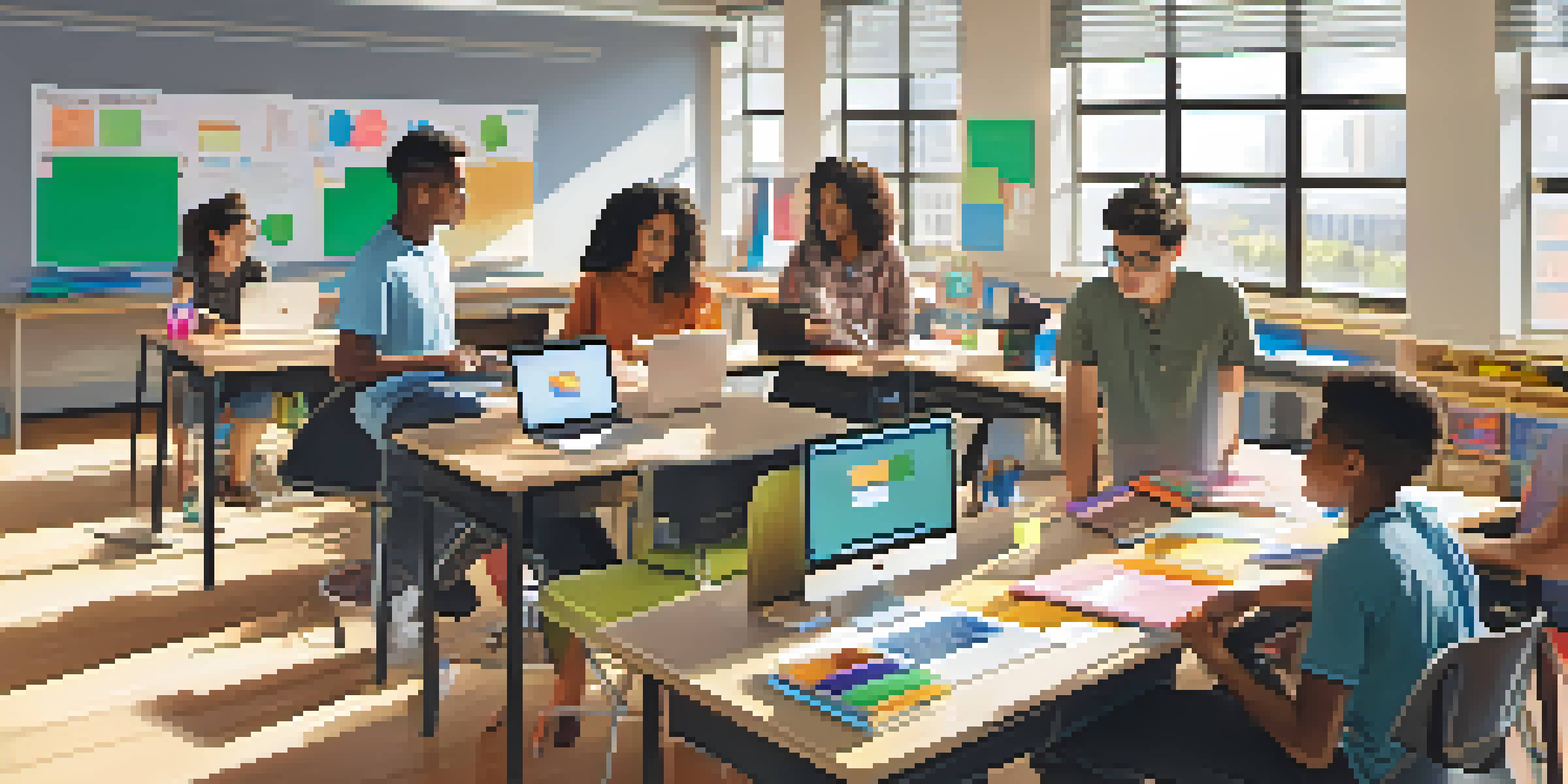Integrating Soft Skills Development in Blended Learning Models

Understanding Soft Skills in Blended Learning
Soft skills, such as communication and teamwork, are essential in today's job market. They enable individuals to work well with others and navigate various social situations effectively. In a blended learning environment, integrating these skills is crucial for enhancing both personal and professional growth.
The Role of Blended Learning Models
Blended learning combines traditional face-to-face instruction with online learning components. This flexibility allows for a more personalized approach to education, catering to diverse learning styles. By incorporating soft skills development into these models, learners can practice and refine their interpersonal abilities in various contexts.
Importance of Soft Skills
Soft skills like communication and teamwork are essential for personal and professional growth in today's job market.
Benefits of Soft Skills Development
Developing soft skills leads to improved collaboration, adaptability, and emotional intelligence. These skills are highly valued by employers, often making the difference in hiring decisions. Furthermore, they enhance overall learning experiences, making education more relevant and engaging.
Strategies for Integration in Blended Learning
Integrating soft skills in blended learning can be achieved through various strategies. For example, incorporating group projects can foster teamwork and communication. Additionally, online discussions and role-playing exercises can help learners practice empathy and conflict resolution in a safe environment.
Blended Learning Enhances Skills
Blended learning models effectively integrate soft skills development through diverse learning strategies and real-world applications.
Assessment Methods for Soft Skills
Assessing soft skills can be challenging, but it's essential for tracking progress. Observational assessments, peer feedback, and self-reflections are effective methods to evaluate these skills. By using a combination of these approaches, educators can gain a comprehensive view of a learner's development.
Challenges in Integrating Soft Skills
While the benefits are clear, integrating soft skills into blended learning is not without its challenges. Educators may face resistance from students who prioritize technical skills over interpersonal ones. Additionally, finding the right balance between content delivery and skills practice can be tricky in a blended format.
Challenges in Skills Integration
Integrating soft skills into blended learning faces challenges, including student resistance and balancing content delivery with skills practice.
Real-World Applications of Soft Skills
Soft skills are not just theoretical; they have practical applications in the workplace. For instance, effective communication can lead to better project outcomes, while strong teamwork enhances productivity. By embedding these skills in blended learning, educators prepare students for real-world challenges.
Future Trends in Soft Skills Development
The demand for soft skills will continue to grow as workplaces evolve. Emerging technologies and remote work environments require individuals who can adapt and collaborate effectively. By staying ahead of these trends, blended learning models can ensure that learners are equipped for the future.